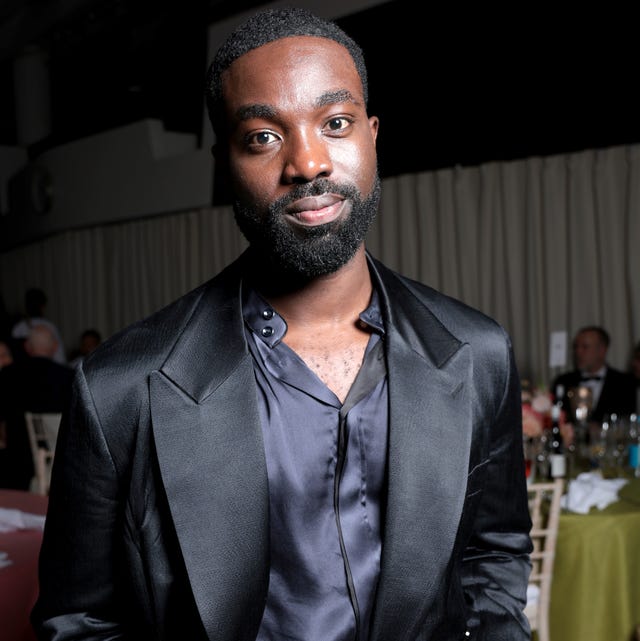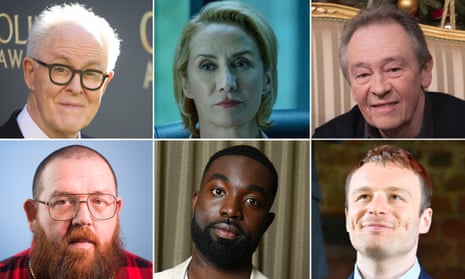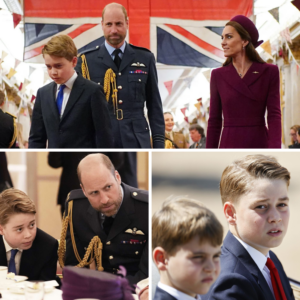The announcement of Paapa Essiedu as Severus Snape in HBO’s upcoming Harry Potter television series has ignited a firestorm of controversy, with fans and critics alike clashing over the decision to cast a Black actor in a role traditionally depicted as white. The casting, confirmed on April 14, 2025, has sparked heated debates about fidelity to J.K. Rowling’s source material, the implications of race-swapping in adaptations, and the broader cultural dynamics of representation in media. As the series, touted as a “faithful adaptation” of Rowling’s beloved novels, moves toward its 2026 premiere, the backlash raises questions about the balance between creative liberty and audience expectations.
HBO’s Harry Potter series, produced by Warner Bros. Discovery (WBD), aims to adapt each of Rowling’s seven books into a season-long narrative, promising deeper exploration of the wizarding world than the original films allowed. When WBD announced its commitment to a “book-accurate” adaptation, fans anticipated casting choices that would closely mirror the descriptions in Rowling’s texts. Severus Snape, one of the series’ most complex and iconic characters, is described in the novels as a “thin man with sallow skin, a large, hooked nose, and yellow, uneven teeth,” with “shoulder-length, greasy black hair” and “cold, black eyes.” The late Alan Rickman’s portrayal in the films, which cemented Snape as a pale, brooding figure with a distinct British gravitas, became a cultural touchstone for fans.

The casting of Essiedu, a British actor known for his nuanced performances in I May Destroy You and The Lazarus Project, has been met with both praise and condemnation. Supporters argue that Essiedu’s talent makes him an ideal choice to capture Snape’s emotional depth and moral ambiguity. “Paapa Essiedu excels at portraying layered, complex characters,” wrote critic Lena Harper on Yahoo. “He would be a fantastic Snape, regardless of physical differences from the book’s description.” Others, including X user @Abz_Swervo22, expressed optimism about Essiedu’s potential, stating, “He’d do a great job. It’s going to be hard to live up to the original actors, but I’d be more than happy with Paapa Essiedu as Snape.”
However, a significant portion of the Harry Potter fanbase has rejected the casting, citing deviations from Rowling’s text and the perceived betrayal of HBO’s “faithful adaptation” promise. Social media platforms, particularly X, have become battlegrounds for these sentiments. A post by @EndWokeness, viewed 1.5 million times, juxtaposed images of Rickman’s Snape with Essiedu, decrying the casting as evidence of “woke Hollywood.” Actor Kevin Sorbo commented, “Woke Hollywood is the worst,” while YouTuber Ryan Kinel argued, “The whole point of this series should be to adapt it as close to the books as possible. Snape is white. The books are beloved by millions, and there’s no reason to change them.” These reactions reflect a broader frustration among some fans who view race-swapping as an unnecessary alteration of established canon.
The controversy is not new to the Harry Potter franchise. In 2016, the casting of Black actress Noma Dumezweni as Hermione Granger in the stage play Harry Potter and the Cursed Child drew similar backlash, though Rowling defended the decision, noting that Hermione’s race was never explicitly stated in the books. Snape’s case, however, is complicated by his detailed physical description and the cultural weight of Rickman’s performance. “Snape is a deeply complicated character,” one fan wrote on Reddit’s r/CriticalDrinker community. “Changing his appearance risks altering the dynamic of his story, especially his bullying by James Potter and his unrequited love for Lily.” Some fans worry that casting a Black actor could introduce unintended racial undertones to scenes of Snape’s ostracism, which were not present in Rowling’s narrative.
Critics of the backlash argue that the focus on Snape’s race overlooks Essiedu’s qualifications and the creative possibilities of reinterpretation. Newsweek reported that Rowling herself has not publicly commented on Essiedu’s casting, but her past support for diverse casting suggests she may approve. “Snape is never described as white in the books,” one defender noted, challenging the assumption that the character’s sallow complexion inherently denotes a specific race. Others point out that Rowling’s early sketches of Snape, which depict a pale, hook-nosed figure, are not definitive canon, and adaptations have always taken liberties with source material.
The debate also intersects with broader cultural tensions. Some fans speculate that Essiedu’s casting is an attempt by HBO to appeal to progressive audiences, particularly in light of Rowling’s controversial statements on transgender issues, which have alienated some liberal fans. “This could be HBO pandering to those disenchanted by Rowling’s views,” one commenter on Bored Panda suggested. Conversely, critics of the casting frame it as part of a larger trend of “woke” interventions in media, with YouTube channels like Geeks + Gamers and Nerdrotic labeling the series “DOA” (dead on arrival) due to the backlash. A video titled “HBO’s Harry Potter DISASTER!” garnered significant attention, accusing WBD of prioritizing diversity over storytelling integrity.

Beyond Snape, the series’ casting choices have raised additional concerns. John Lithgow’s confirmation as Dumbledore, the first American to play a major role in the franchise, breaks Rowling’s strict British-casting rule from the films. Janet McTeer, reportedly in talks to play Minerva McGonagall, aligns more closely with the character’s book description, but the inconsistent approach to casting has fueled skepticism about HBO’s vision. With over 32,000 actors auditioning for the roles of Harry, Ron, and Hermione, fans are bracing for further surprises that may challenge their expectations.
The implications of the Snape casting extend beyond Harry Potter. The controversy reflects ongoing debates about representation, authenticity, and the role of adaptations in modern media. Proponents of Essiedu’s casting argue that diversity in casting can enrich stories, particularly in a franchise criticized for its lack of racial inclusivity. “The Wizarding World isn’t exactly the most diverse universe,” noted Yahoo, pointing to the limited screen time for Black characters like Dean Thomas and Kingsley Shacklebolt in the films. Yet, opponents contend that altering iconic characters risks alienating the very audience the series aims to capture. “If you can’t be bothered to correctly cast your show, this tells me you won’t respect the pre-established lore,” one fan wrote on MovieWeb.
As HBO navigates pre-production, the studio remains tight-lipped, stating, “We appreciate that such a high-profile series will draw a lot of rumor and speculation. We will only confirm details as we finalize deals.” The polarized reactions suggest that the series, still years from release, faces an uphill battle to satisfy a global fanbase with deeply personal connections to Rowling’s world. Whether Essiedu’s performance can transcend the controversy remains to be seen, but the casting has already left an indelible mark on the discourse surrounding the reboot.
For now, the Harry Potter series stands at a crossroads. Will it redefine the wizarding world for a new generation, or will it become, as some fans fear, a cautionary tale of adaptation gone awry? Only time—and perhaps a few well-placed spells—will tell.



